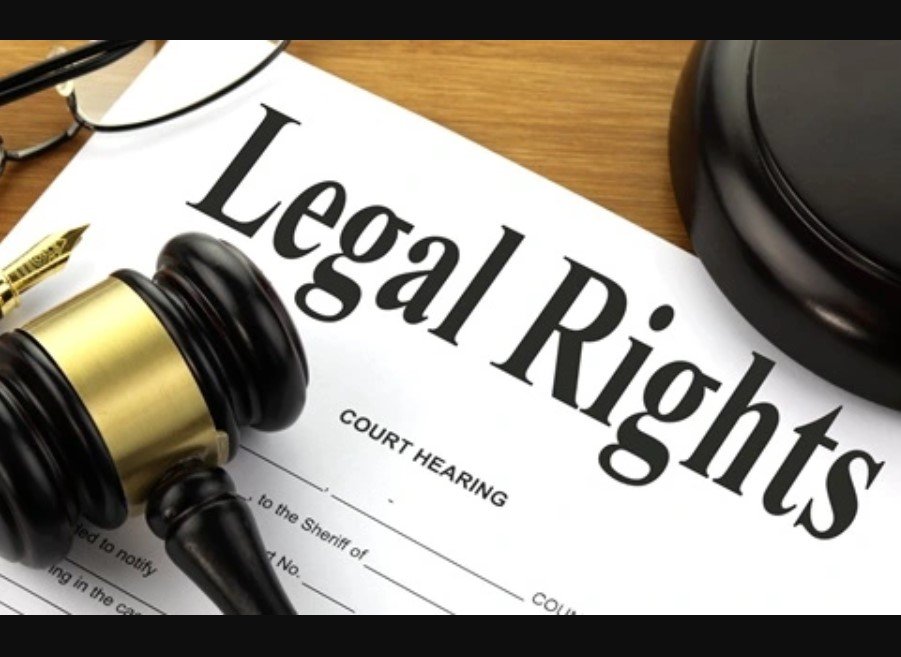Legal rights are foundational elements of any society, ensuring that individuals are protected, respected, and granted fair treatment under the law. These rights are designed to safeguard freedoms, promote justice, and offer recourse when infringements occur. From civil liberties to employment rights, this article will provide a detailed overview of what legal rights are, why they matter, and how they impact our daily lives.
What Are Legal Rights?
Legal rights are protections and privileges granted to individuals by laws, statutes, or legal precedent. They vary across jurisdictions and can cover everything from personal freedoms to rights in the workplace, housing, and healthcare. These rights are fundamental to ensuring a fair, just, and safe society, and they form the backbone of any democratic system. Broadly speaking, they encompass a wide range of issues including civil liberties, criminal protections, and economic rights.
Types of Legal Rights
- Civil Rights
- Civil rights are the rights of individuals to receive equal treatment and to be free from unfair treatment or discrimination. Examples include the right to vote, freedom of speech, and protection against discrimination based on race, gender, age, religion, or disability. Civil rights are protected under various statutes and legal frameworks worldwide, such as the U.S. Constitution, the European Convention on Human Rights, and the Universal Declaration of Human Rights.
- Human Rights
- Human rights are universal rights that every individual possesses, regardless of nationality, race, or religion. These rights include freedom from torture, the right to life, and the right to privacy. International bodies such as the United Nations have established declarations and covenants, like the Universal Declaration of Human Rights (UDHR), to outline and protect these rights on a global scale.
- Criminal Rights
- Criminal rights protect individuals who are accused of crimes, ensuring fair treatment and due process within the legal system. This includes the right to a fair trial, the right to remain silent, the right to an attorney, and protection against unreasonable searches and seizures. In many countries, these rights are enshrined in documents like the U.S. Constitution’s Bill of Rights or the European Convention on Human Rights.
- Economic and Social Rights
- Economic and social rights pertain to areas such as employment, healthcare, education, and housing. For instance, many countries guarantee the right to work in fair conditions, access healthcare, and pursue an education. Some legal systems even extend these protections to include a basic standard of living or income support for citizens.
Key Civil and Human Rights
- Freedom of Speech and Expression: This right allows individuals to express themselves without fear of government retaliation. However, there are often limitations to this right, such as restrictions against hate speech or incitement to violence.
- Right to Privacy: The right to privacy protects individuals from unwarranted intrusion into their personal lives by the government, employers, or other individuals. This includes protections over personal information, surveillance, and even certain personal decisions.
- Freedom of Assembly: This right grants individuals the ability to gather peacefully, such as for protests or rallies, without fear of legal repercussions. It is a critical right for maintaining democratic practices and enabling social change.
Rights Within the Criminal Justice System
- Right to a Fair Trial
- The right to a fair trial is one of the most fundamental principles of the legal system. It ensures that everyone receives a public trial by an impartial judge, with the opportunity to present a defense, access legal representation, and challenge evidence.
- Right to Be Informed of Charges
- If you are arrested, you have the right to be informed of the charges against you. This is crucial for preparing an adequate defense and understanding the nature of the accusations.
- Right Against Self-Incrimination
- Commonly known as the “right to remain silent,” this protects individuals from being forced to testify against themselves during interrogation or trial.
- Protection Against Double Jeopardy
- The principle of double jeopardy ensures that an individual cannot be tried twice for the same offense, safeguarding against repeated prosecution after an acquittal.
Economic and Employment Rights
Employment rights protect workers in various aspects, including fair wages, safe working conditions, and freedom from discrimination.
- Right to Fair Wages and Conditions: This ensures that workers are compensated fairly for their labor, in compliance with minimum wage laws and other statutory protections.
- Right to a Safe Work Environment: Employers are obligated to provide a safe working environment. This includes adhering to health and safety standards, protecting employees from hazardous conditions, and offering necessary training.
- Right to Freedom from Discrimination: Employment discrimination laws protect workers from being treated unfairly due to factors like race, gender, age, or disability. In many countries, these protections are enforced through various federal and state agencies.
- Right to Unionize and Collective Bargaining: This allows employees to organize or join unions, collectively negotiate wages and work conditions, and take part in union activities without fear of retaliation.
How Legal Rights Impact Daily Life
Legal rights have a profound effect on almost every aspect of daily life. From using public spaces to making transactions, people rely on these rights for security and support. They enable us to communicate freely, expect fair treatment, and seek help when our rights are violated. For example, consumer protection laws offer legal recourse against fraudulent business practices, while housing rights protect against unfair eviction or discrimination in renting.
Protecting and Enforcing Your Legal Rights
Understanding one’s rights is the first step in protecting them. Here are some key actions to consider:
- Educate Yourself: Knowing your rights helps you identify when they are being violated. Legal resources, libraries, and online databases can provide valuable information.
- Seek Legal Counsel: If you believe your rights have been infringed upon, consulting a lawyer is often beneficial. Legal professionals can provide guidance, represent you in disputes, and help navigate complex legal processes.
- Utilize Support Organizations: Many non-profits and advocacy groups work to defend individuals’ rights, particularly for vulnerable populations. Organizations like the American Civil Liberties Union (ACLU) or Amnesty International offer resources and support for legal issues related to civil liberties and human rights.
- Know the Limits: Legal rights are powerful, but they often come with limits. For example, freedom of speech doesn’t protect incitement to violence, and privacy rights may be restricted under certain laws, such as during criminal investigations.
The Future of Legal Rights
With technological advancements, legal rights are continuously evolving. Issues such as data privacy, cybercrimes, and artificial intelligence raise new questions about how rights are defined and enforced. Laws are adapting to protect individuals’ rights in digital spaces, addressing concerns over data collection, online harassment, and AI usage in decision-making processes. Future discussions about legal rights will likely involve balancing innovation with personal freedoms.
Conclusion
Legal rights are fundamental to maintaining a fair and just society. They cover a broad spectrum of areas, from civil liberties to economic rights, and impact everyone in various ways. Understanding these rights empowers individuals to advocate for themselves and others, ensuring that everyone can live with dignity, freedom, and security.



